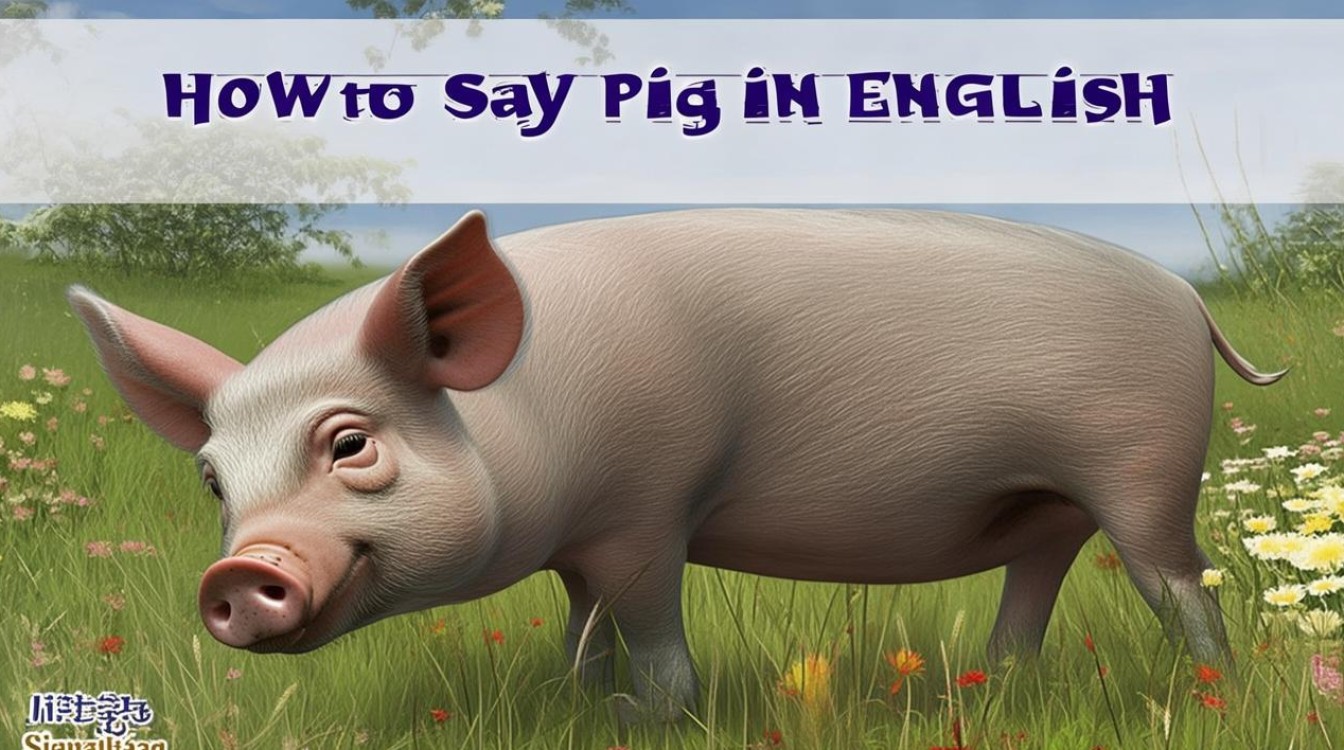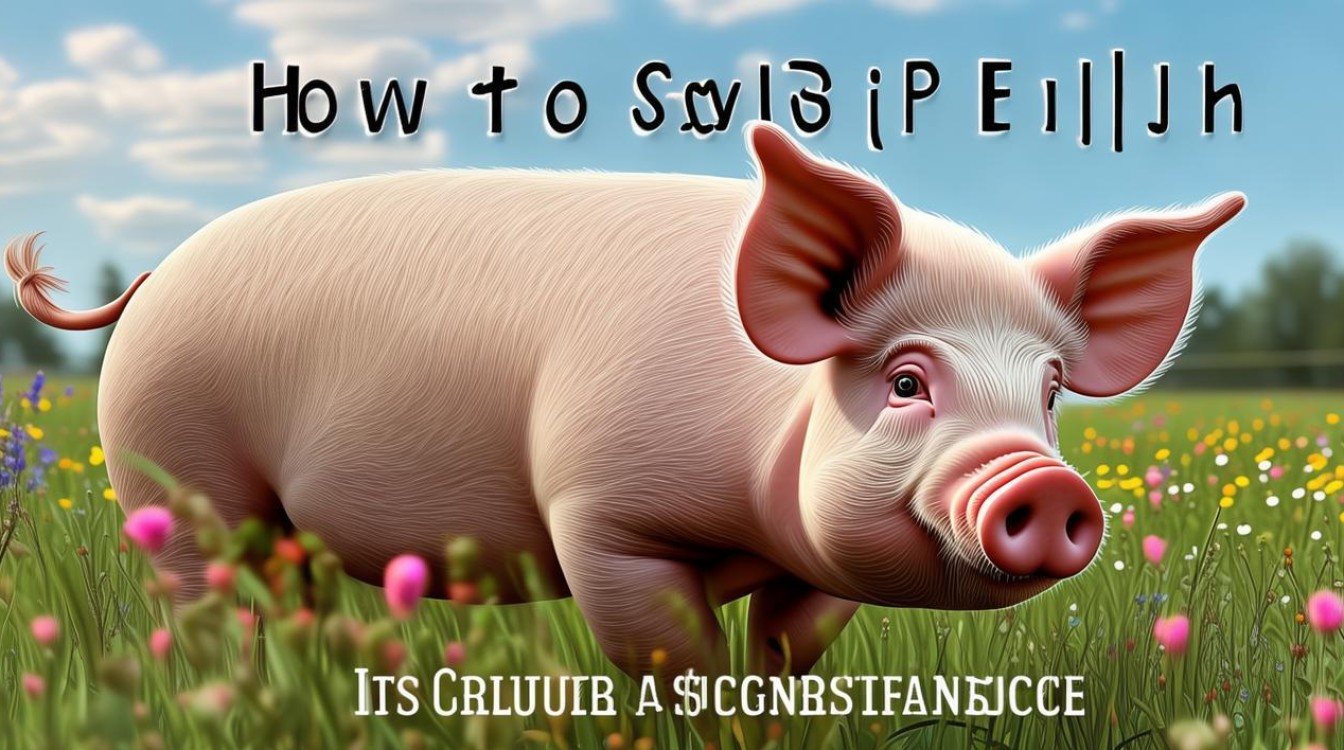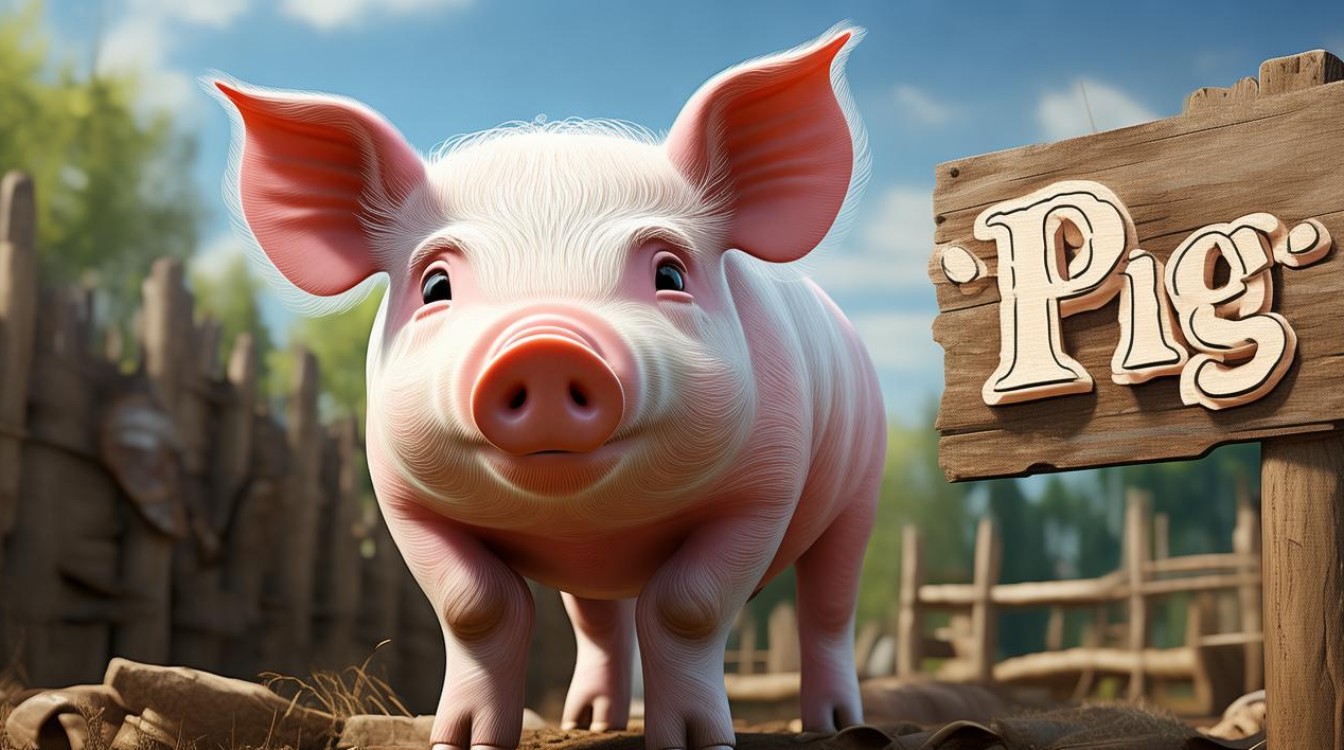When learning a new language, one of the first things people often explore is animal vocabulary. Among the most common animals mentioned is the pig. The English word for "猪" is simply "pig." However, this term carries more than just a direct translation—it has linguistic nuances, cultural associations, and even idiomatic expressions worth understanding.

The Basic Translation: Pig
In English, "pig" refers to the domesticated animal commonly raised for meat, such as pork, bacon, and ham. The word is straightforward, but its usage extends beyond the literal meaning. For example:
- Piglet: A baby pig.
- Sow: An adult female pig.
- Boar: A wild pig or an uncastrated male pig.
These terms help differentiate between the animal's age, gender, and domestication status.
Pig in Idioms and Expressions
English speakers frequently use "pig" in phrases that convey various meanings, often metaphorical. Some well-known examples include:
- "When pigs fly": An idiom meaning something is impossible.
- "Pig out": A slang term for eating excessively.
- "Guinea pig": Refers to a test subject, derived from the use of these animals in experiments.
These expressions highlight how deeply embedded the pig is in everyday language.
Cultural Perceptions of Pigs
Different cultures view pigs in contrasting ways. In Western societies, pigs are often associated with:

- Intelligence: Studies show pigs are highly intelligent, even more so than dogs.
- Gluttony: The phrase "eating like a pig" unfairly stereotypes them as greedy.
- Agriculture: Pigs are vital in farming for meat production.
Meanwhile, in some cultures, pigs are considered unclean, influencing dietary restrictions. Understanding these perspectives helps in cross-cultural communication.
Pigs in Literature and Media
Pigs appear frequently in stories and films, often symbolizing different traits. Notable examples include:
- "Charlotte's Web": Wilbur the pig is a beloved character representing innocence.
- "Animal Farm": The pigs symbolize political corruption.
- "Peppa Pig": A children’s show that portrays pigs as friendly and family-oriented.
These portrayals shape how people perceive pigs beyond their biological definition.
Scientific and Ecological Role of Pigs
Pigs play a significant role in ecosystems and scientific research:
- Waste Management: Feral pigs help decompose organic matter in forests.
- Medical Research: Due to their physiological similarities to humans, pigs are used in studies.
- Biodiversity: Wild boars contribute to maintaining forest habitats.
This scientific importance adds another layer to the word "pig."

Common Misconceptions About Pigs
Despite their intelligence and ecological benefits, pigs are often misunderstood. Some myths include:
- "Pigs are dirty": In reality, they avoid soiling their living spaces if given the choice.
- "Pigs can’t swim": They are capable swimmers.
- "Pigs have no purpose beyond meat": They contribute to medicine, ecology, and companionship.
Dispelling these myths fosters a more accurate understanding of the animal.
Learning English Through Animal Vocabulary
For language learners, mastering animal terms like "pig" is a practical step. Here’s how to expand this knowledge:
- Use Flashcards: Pair the English word with an image.
- Watch Documentaries: Programs about farming or wildlife reinforce vocabulary.
- Read Children’s Books: Simple stories often include animal names repetitively.
This approach makes memorization easier and more engaging.
Why Knowing "Pig" Matters
Beyond translation, understanding the word "pig" opens doors to cultural insights, idiomatic expressions, and scientific discussions. Whether discussing farming, idioms, or literature, the term is versatile.

Language is more than words—it’s about context. The next time you hear "pig," consider its broader meaning. From farmyards to fairy tales, this humble animal holds a significant place in English.
Appreciating the depth of a single word like "pig" enriches communication and cultural awareness. Whether you're a student, traveler, or curious reader, this knowledge adds value to your language journey.

